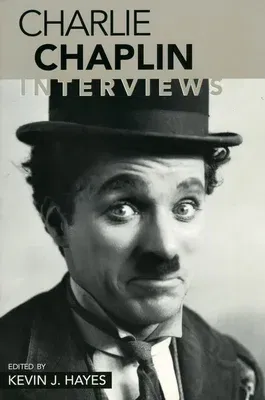In late 1914, Charlie Chaplin's name first began appearing on marquees.
By the end of the following year, moviegoers couldn't get enough of him
and his iconic persona, the Little Tramp. Perpetually outfitted with
baggy pants, a limp cane, and a dusty bowler hat, the character became
so beloved that Chaplin was mobbed by fans, journalists, and critics at
every turn. Although he never particularly liked giving interviews, he
accepted the demands of his stardom, giving detailed responses about his
methods of making movies. He quickly progressed from making two-reel
shorts to feature-length masterpieces such as The Gold Rush, City
Lights, and Modern Times. Charlie Chaplin: Interviews offers a complex
portrait of perhaps the world's greatest cinematic comedian and a man
who is considered to be one of the most influential screen artists in
movie history. The interviews he granted, performances in and of
themselves, are often as well crafted as his films. Unlike the Little
Tramp, Chaplin the interviewee comes across as melancholy and serious,
as the titles of some early interviews-"Beneath the Mask: Witty,
Wistful, Serious Is the Real Charlie" or "The Hamlet-Like Nature of
Charlie Chaplin"-make abundantly clear. His first sound feature, The
Great Dictator, is a direct condemnation of Hitler. His later films such
as Monsieur Verdoux and Limelight obliquely criticize American policy
and consequently generated mixed reactions from critics and little
response from moviegoers. During this late period of his filmmaking,
Chaplin granted interviews less often. The three later interviews
included here are thus extremely valuable, offering long, contemplative
analyses of the man's life and work.


